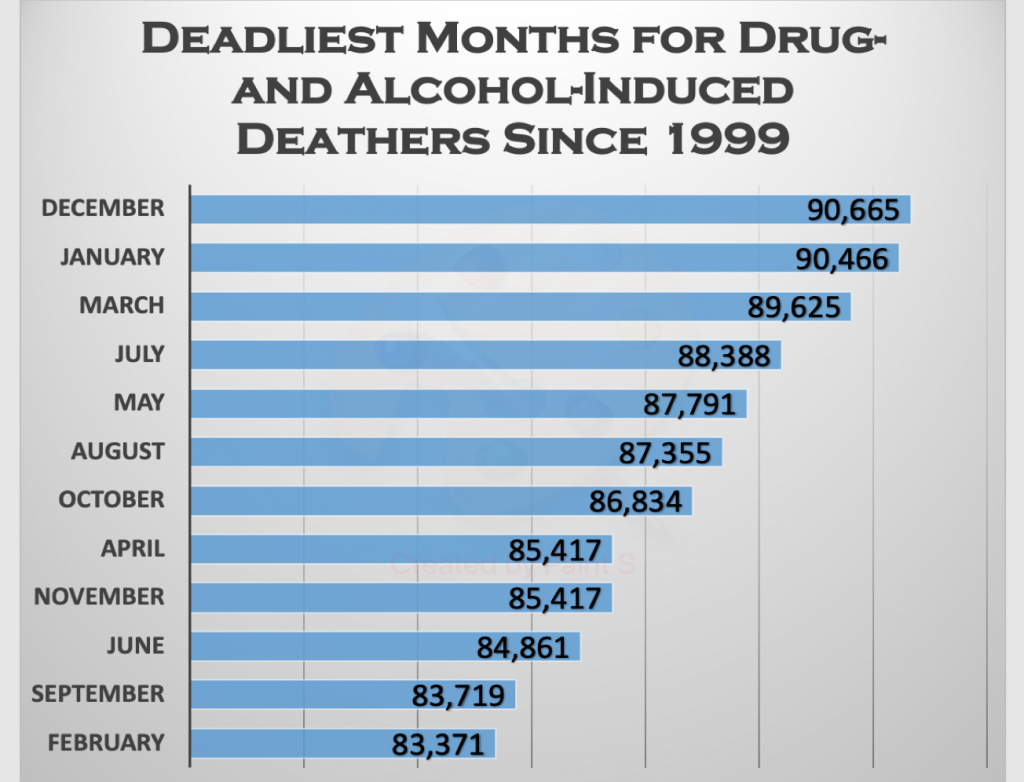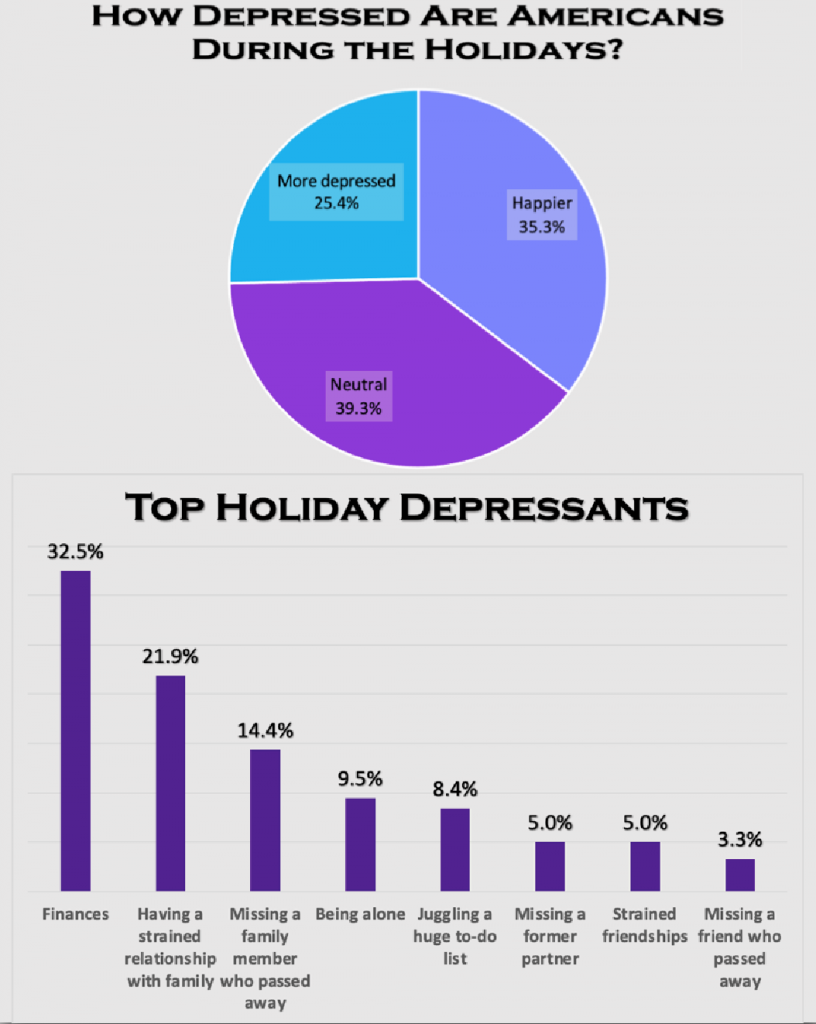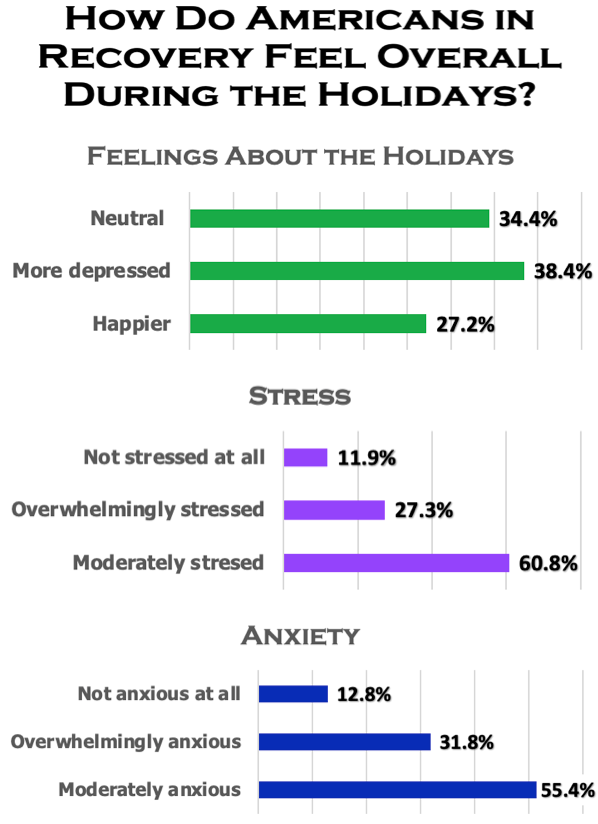
Written by Anet Khechoumian, Licensed Marriage and Family Therapist
The holidays can be unanimously seen as both a joyful and stressful event for many people. The excitement that brings gift exchanges and travel, also brings about the complexities of family units, finances and stressors. When stressors increase, we often turn to the coping mechanisms we are most familiar with, whether healthy or unhealthy. This time of year poses as a significant stressor for those in recovery from addiction, or in the grips of struggling with addiction. When triggers occur more frequently, it can be an invitation for a destructive relapse to take course.
For those struggling with addiction, the pressures of the holiday season are amplified, as the same issues that contribute to the root cause of the addiction, only becomes more prominent. If these stressors have not been addressed in treatment, they are likely to have been laid dormant, until later triggered by stressors. Many addicts will share strong feelings of shame, guilt, isolation, and boredom, which combined with lack of stability can drive an otherwise motivated recovering addict into a relapse.
Research shows that the deadliest month for Drug overdose, starts in October, and peaks in December and January of each year. 28.6% of average Americans consume more alcohol than usual, with a slightly higher rate in Men. (Data collected from American Addiction Center)

When we look at how much of an increase level of stress is reported by Americans , we see a momentous 64 % reporting to be moderately stressed, and 19% reporting to be overwhelmingly stressed.
From here, we try to specify the cause of stressors, and see that nearly all of the items of stressors are related to relationships (the highest stressors being finances). 25% states that they feel more depressed during the holiday season, which has a significant link to higher probabilities of use of mind altering substances.

Those still struggling with and active addiction find it harder to hide the addiction or addictive behaviors from others, while the added stress can paradoxically intensify the unhealthy behavior. It is important to consider that addictive behavior is also learned and compulsive behavior, which is highly likely to be triggered in familiar, enabling, judgmental, and angry environments that can lead to self destructive patterns. In specific to those struggling with addiction, 38 % report feeling more depressed during the holiday season, 27% feeling overwhelming stress, and 31% feeling overwhelmingly anxious.

These statistics may seem alarming and discouraging for those struggling with addiction, and their loved ones, although along with the stressors we also have an array of healthy methods of effective coping strategies to avert relapse or addiction.
Some of these effective strategies and techniques include:
Skipping unhealthy family gatherings
Attending an AA or NA meetings
Asking for help
Taking time off work
Staying connected with a sponsor
Planning gathering without substances
Maintaining exercise
Eating healthy
Prioritizing sleep
Spending time with healthy family members and friends
Meditating
Using grounding skills and breathing exercises
Restricting budget
Seeing mental health professionals
Connecting with community resources
Practice, rehearse and use role play, while also utilizing boundaries and time outs when needed. Make distinctive plans for healthy activities, that are alternatives to past patterns, and can diminish triggers.
As families begin to strip away the shame and blame from substance use, they can be more open about the effort taken towards recovery (however small or big), and can add to celebrating loved ones, to encourage more connection and affection. Addicts can determine how comfortable they feel with sharing the stage of their recovery, and can prepare with responses that can be used during uncomfortable conversations. Thankfully, loved ones have the ability to contribute to the preventive components that can be taken to combat the risk and probability of a relapse or continued substance use to occur. Those struggling with a family member or loved one in the grips of addiction, can all remember the times when they received an alarming call about a recent or current crisis.
We can distinguish behaviors of an addict by behaviors being the cause of the substance, behaviors caused by the withdrawal, and long term personality changes by virtue of effect of addiction on the brain. Family members often don’t distinguish these differences, and only see a distinct change in their loved one, and will identify the change as “someone I do not recognize anymore.” Individuals and loved ones struggling with addiction do not need to continue living in the reoccurring nightmare that consumes their lives. Help and healing, can turn the number of addicts to the number of sober, recovering and healthy individuals. Don’t wait until the new year, to set a life changing resolution, and change the trajectory of everyone effected by addiction. For those interested in starting recovery, please contact ARI Recovery at (714) 465-9446 or Arirecovery.com
{Connect} Web: AnetTherapy.com -IG:@AnetTherapy- Email : AnetTherapy@gmail.com
